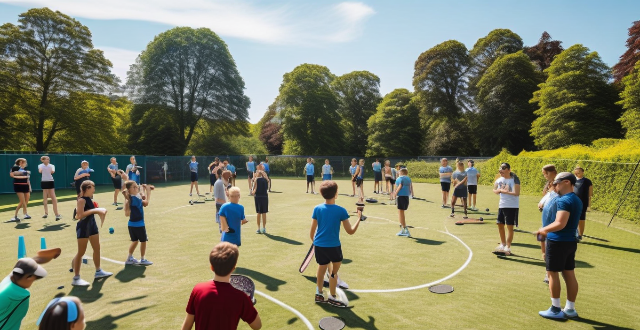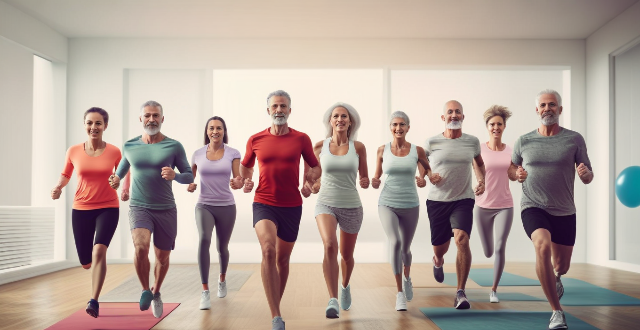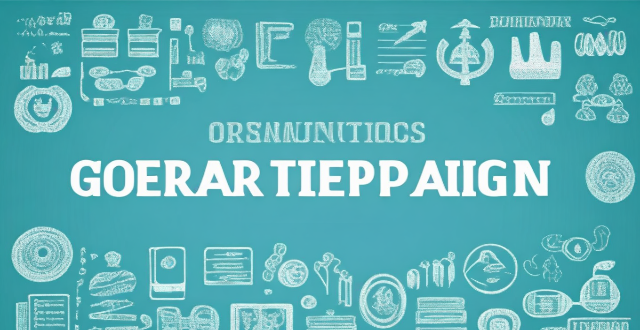Cognitive Group

Can team sports or group exercises provide additional cognitive benefits compared to individual activities ?
Team sports and group exercises provide cognitive benefits such as improved social skills, enhanced cognitive functioning, increased self-esteem and confidence, and personal growth opportunities. Participating in these activities helps individuals develop strong communication skills, cooperation, conflict resolution abilities, attention and focus, decision making skills, memory retention, and a sense of achievement. These skills can be applied in all aspects of life, leading to personal growth and development.

What are the psychological benefits of group exercise for older adults ?
The article discusses the psychological benefits of group exercise for older adults, including increased social interaction, enhanced cognitive function, and increased motivation and accountability. It emphasizes how group exercise can reduce feelings of isolation and loneliness, improve mood and mental health, stimulate brain activity, delay the onset of cognitive decline, provide peer support and encouragement, and promote goal setting and achievement. Overall, it suggests that participating in group exercise activities can greatly enhance the overall well-being of older adults and contribute to a higher quality of life as they age.

How does exercise improve cognitive function ?
Exercise plays a crucial role in enhancing cognitive function, including memory, attention, and problem-solving skills. It promotes brain plasticity, increases blood flow and oxygenation, reduces inflammation, and improves sleep quality. Incorporating exercise into your routine can be done through various activities such as running, swimming, or yoga. Start small and gradually increase intensity and duration, find enjoyable activities, incorporate mindful movement, make it social, set realistic goals, and consult with a professional if needed.

Does exercise have different effects on cognitive function at different ages ?
This article explores the relationship between exercise and cognitive function across various age groups. It highlights the benefits of exercise for children's cognitive development, adults' reduced risk of cognitive decline, and older adults' slowed cognitive decline. Examples of suitable exercises for each age group are provided, including playing sports for children, aerobic activities for adults, and walking or cycling for older adults. The article concludes that incorporating physical activity into daily routines at any age is crucial for maintaining cognitive health and overall well-being.

Can regular exercise prevent cognitive decline in older adults ?
Regular exercise may help prevent cognitive decline in older adults by promoting neuroplasticity, improving blood flow to the brain, and reducing inflammation. Multiple studies have found positive associations between physical activity and cognitive function in this age group. Guidelines recommend aerobic exercise, resistance training, and activities that improve flexibility and balance. Making exercise a regular part of daily life is key for maintaining cognitive benefits over time.

Is there a specific type of exercise that is most effective for enhancing cognitive abilities ?
Exercise has been shown to have numerous benefits on cognitive abilities, but is there a specific type of exercise that is most effective? Aerobic exercise improves blood flow and reduces stress, while resistance training boosts BDNF levels and enhances executive function. Combination exercises provide a comprehensive workout for the body and brain. Finding an exercise routine that you enjoy and can stick to is key to reaping the cognitive benefits over time.

How does physical activity affect children's cognitive development ?
This article discusses the positive impacts of physical activity on children's cognitive development, including improved attention and memory, enhanced executive functioning, increased learning abilities, reduced stress and anxiety, and promoted socialization and teamwork skills. Regular exercise can enhance blood flow to the brain, strengthen neural connections in the prefrontal cortex, stimulate neurogenesis, release endorphins, and provide a healthy outlet for releasing energy and emotions. Encouraging children to engage in regular physical activity can have long-lasting positive effects on their overall well-being and success throughout life.

What are the implications of cognitive development theories in educational psychology ?
Cognitive development theories have significant implications in educational psychology. These theories help educators understand how children think, learn, and process information. By applying these theories, educators can create effective learning environments that cater to the cognitive needs of their students. Piaget's theory suggests that children progress through four stages of cognitive development and emphasizes the importance of hands-on activities and constructivist learning. Vygotsky's sociocultural theory highlights the role of social interaction and cultural tools in cognitive development. Information processing theory focuses on working memory, cognitive load, and metacognition. By understanding these theories, educators can enhance student learning and promote cognitive growth.

Is there a difference in mental health benefits between individual and group exercises ?
Exercise plays a vital role in maintaining good mental health, with both individual and group exercises offering unique benefits. Individual exercises provide flexibility, focus, and personal challenge, while group exercises offer social support, motivation, and accountability. Both types of exercise have been shown to reduce stress, anxiety, and depression while improving mood, self-esteem, and cognitive function. Ultimately, finding an activity that you enjoy and can consistently incorporate into your lifestyle is key to maintaining good mental health through exercise.

Is group study beneficial for exam preparation ?
Group study offers benefits for exam preparation, including knowledge sharing, motivation, improved comprehension, social skills development, stress relief, and better time management. Its success depends on factors like group dynamics and commitment levels.

How important is sleep for optimizing concentration and cognitive functions ?
The article discusses the significance of sleep for enhancing concentration and cognitive functions. It states that adequate sleep is crucial for improving attention span, alertness, memory consolidation, learning capacity, problem-solving abilities, and decision-making skills. The benefits of getting enough sleep include improved productivity, better performance, reduced stress levels, and enhanced mood. Therefore, prioritizing sleep as part of a healthy lifestyle is essential to optimize concentration and cognitive functions.

Can exercise reverse cognitive impairment caused by neurological disorders ?
Exercise may help reverse cognitive impairment caused by neurological disorders. Studies have shown that exercise can improve cognitive function in people with Alzheimer's disease, Parkinson's disease, and stroke. Exercise may also reduce inflammation, improve balance and mobility, and increase overall quality of life for people with neurological disorders. More research is needed to fully understand the effects of exercise on cognitive impairment caused by neurological disorders.

How does exercise influence neuroplasticity and cognitive function ?
Exercise has a positive impact on neuroplasticity and cognitive function by increasing blood flow, releasing growth factors, reducing inflammation, improving attention and concentration, enhancing memory, and slowing cognitive decline. Incorporating regular physical activity into your lifestyle can have numerous benefits for your brain health and overall well-being.

Is there a relationship between exercise and cognitive function ?
Exercise is a potential intervention for enhancing cognitive function across the lifespan. The relationship between exercise and cognitive function is complex and multifaceted, involving various aspects of cognition and different types of exercise. Long-term exercise interventions have consistently shown positive effects on cognitive function, particularly in older adults. Different types of exercise may influence specific cognitive functions differently, and the underlying mechanisms behind these effects are still being explored. By incorporating regular physical activity into our daily routines, we can potentially enhance our cognitive function and overall well-being.

What are some tips for leading a successful study group ?
Leading a successful study group requires careful planning, effective communication, and strong leadership skills. To achieve this, it is important to set clear objectives, organize meetings effectively, encourage active participation, foster collaboration and teamwork, and evaluate progress regularly. By following these tips, you can create a productive and enjoyable learning experience for all members of your study group.

How can I effectively communicate with my study group members ?
Effective communication is essential for the success of any study group. To communicate better with your study group members, set clear objectives, use active listening skills, encourage open discussion, provide constructive feedback, and stay organized. By following these tips, you can work together to achieve your academic goals.

What are the best strategies for organizing a study group ?
This text is a guide on organizing a study group, emphasizing the importance of clear goals, selecting compatible members, establishing rules, planning effective meetings, sharing resources, incorporating different learning styles, evaluating progress, maintaining motivation, leveraging technology, and having a backup plan. The strategies outlined aim to enhance academic performance and collaboration skills among group members.

Is there a link between physical fitness and cognitive function ?
The text discusses the potential link between physical fitness and cognitive function, citing research that suggests a correlation. It defines physical fitness as the ability to perform aspects of sports or occupations, obtained through proper nutrition, exercise, and rest, and cognitive function as mental processes involving perceiving, remembering, reasoning, problem-solving, understanding, judging, and learning. The text mentions studies that suggest enhanced physical fitness can improve cognitive function in older people without known cognitive impairment and that physical fitness could be a better predictor of cognitive performance than physical activity. It also discusses potential mechanisms behind the relationship, including increased blood flow to the brain and the release of chemicals that promote cell growth, improvement, and survival. Finally, it notes the potential implications of this research for individual and societal health.

How does exercise affect brain function and cognitive abilities ?
This article discusses how regular physical activity positively impacts brain function and cognitive abilities by improving blood flow, boosting neurotrophic factors, enhancing plasticity, and reducing inflammation. It emphasizes the importance of incorporating exercise into one's lifestyle for maintaining and enhancing cognitive health.

Can exercise compensate for poor sleep quality in terms of cognitive function ?
The article discusses the importance of sleep for cognitive function and whether exercise can compensate for poor sleep quality. While exercise has benefits for cognitive function, it cannot fully replace the memory consolidation and emotion processing that occurs during sleep. Chronic sleep deprivation can lead to long-term changes in brain structure and function that may not be reversible through exercise alone. To maintain optimal cognitive function, both regular physical activity and good sleep habits are essential.

What role does exercise play in maintaining cognitive function in old age ?
Exercise is crucial for maintaining cognitive function in old age, with benefits including improved blood flow, reduced inflammation, and increased neuroplasticity. Aerobic exercise, resistance training, and activities like yoga and tai chi are all beneficial. Incorporating physical activity into your daily routine can help keep your mind sharp as you age.

How long after starting an exercise routine can improvements in cognitive function be expected ?
The text discusses the timeline for improvements in cognitive function after starting an exercise routine. It mentions that immediate benefits such as enhanced mood, improved attention and focus, and increased energy levels can be noticed within 1-3 months. Mid-term benefits like enhanced memory retention, improved executive function, and increased creativity can be observed within 3-6 months. Long-term benefits such as slowed cognitive decline, reduced risk of cognitive disorders, and sustained improvements in overall cognitive performance can be achieved after six months or longer. The text emphasizes the importance of maintaining a consistent exercise regimen over the long term for sustained enhancements in various aspects of cognitive function.

Does exercise influence emotional regulation and mental well-being, which in turn affects cognitive processes ?
The article explores the relationship between exercise, emotional regulation, mental well-being, and cognitive processes. It suggests that regular physical activity can positively impact emotional regulation by reducing stress levels, improving self-esteem, and providing a healthy outlet for negative emotions. Exercise also contributes to improved mental well-being by alleviating symptoms of depression and anxiety, promoting relaxation, and providing opportunities for social interaction. These factors, in turn, influence cognitive processes such as attention, memory, problem solving, and decision making. Overall, the article concludes that incorporating exercise into daily routines can have numerous benefits for overall health and well-being.

What are the advantages and disadvantages of working in a study group ?
The advantages of working in a study group include improved learning outcomes, enhanced collaboration skills, motivation and accountability, and exposure to diverse perspectives. However, the disadvantages include time management challenges, unequal participation, lack of individual attention, and personality conflicts. To make the most of a study group, it is important to establish clear guidelines, set expectations for participation, and communicate openly with group members about any issues that arise.

How can I encourage active engagement in a study group ?
This article discusses strategies for encouraging active engagement in a study group, including setting clear goals and objectives, fostering a collaborative environment, assigning roles and responsibilities, providing opportunities for feedback and reflection, using technology to facilitate engagement, and offering incentives for participation. The author emphasizes the importance of active engagement for the success of a study group and encourages readers to make it a priority from the start.

What are the benefits of collaborating in a study group ?
**Benefits of Collaborating in a Study Group** Collaborating in a study group offers numerous benefits to students, including enhanced learning and understanding, improved academic performance, development of valuable skills, and emotional and social benefits. By participating in study groups, students can gain different perspectives, active participation, immediate feedback, better grades, increased retention, preparation for class discussions, communication skills, teamwork and collaboration, critical thinking, time management, reduced anxiety and stress, building friendships, increased motivation, and networking opportunities. Overall, collaborating in a study group is an excellent way to make the most out of your educational journey while building lasting relationships along the way.

What kind of group discounts are available at local restaurants ?
The article provides a comprehensive overview of the different group discounts that local restaurants offer to attract larger parties. These discounts include early bird specials, set menu options, bulk discounts, happy hour deals, birthday/special occasion deals, reservation-based discounts, loyalty programs, referral incentives, seasonal promotions, and split bill facilities. The article also offers tips for maximizing these discounts, such as planning ahead, asking about specials, negotiating, checking online, joining loyalty programs, combining offers, booking in advance, considering off-peak times, sharing the love, and being flexible. By utilizing these strategies, groups can enjoy memorable meals without breaking the bank.

How can I handle disagreements or differing opinions in a study group ?
In the text, the author provides a guide on how to handle disagreements in a study group. They suggest listening actively, staying calm and respectful, using "I" statements, finding common ground, compromising, taking breaks, and seeking mediation. The author emphasizes that handling disagreements requires patience, empathy, and effective communication skills. Overall, they argue that learning how to handle disagreements effectively can lead to stronger relationships and better outcomes.

How can I make the most out of group study sessions ?
Group study sessions can be an incredibly effective way to learn and review material. By pooling knowledge, sharing insights, and engaging in collaborative learning, students can deepen their understanding of complex topics and improve their academic performance. To make the most out of group study sessions, consider the following strategies: ## Setting Clear Objectives - **Establish Goals**: Before diving into a study session, it's important to set clear objectives. Decide what topics or areas you want to cover and what you hope to achieve by the end of the session. - **Create an Agenda**: Prepare a structured agenda that outlines the topics to be discussed and the time allocated for each. This helps keep the study session focused and productive. ## Preparation is Key - **Assign Pre-reading**: Encourage all group members to do some pre-reading or pre-work before the session. This ensures everyone comes prepared with basic knowledge and questions to discuss. - **Bring Materials**: Each participant should bring relevant textbooks, notes, or any other materials that could facilitate the discussion. ## Active Participation - **Engage Actively**: Encourage all members to actively participate by asking questions, sharing insights, and contributing to discussions. - **Take Turns Teaching**: Rotate the role of "teacher" among group members. Research shows that teaching a concept to others reinforces your own understanding. ## Promote Collaboration - **Share Different Perspectives**: Each member may have a unique approach or perspective on the material. Encourage sharing these viewpoints to enrich the discussion. - **Brainstorm Together**: When confronted with challenging problems or concepts, work together to brainstorm solutions. ## Stay Focused - **Minimize Distractions**: Try to minimize distractions during the study session. Put away phones, limit side conversations, and create an environment conducive to learning. - **Stick to the Agenda**: Keep the discussion on track by referring back to the agenda and managing the time spent on each topic. ## Review and Reinforce - **Recap Key Points**: At the end of the session, summarize the key points covered. This helps reinforce learning and provides a quick reference for future studying. - **Assign Follow-up Tasks**: Assign tasks or exercises to be completed before the next session. This keeps the momentum going and ensures continued engagement with the material. ## Evaluate and Reflect - **Reflect on the Process**: Take a few minutes at the end of the session to reflect on what worked well and what could be improved. This helps fine-tune future study sessions. - **Evaluate Learning Outcomes**: Consider assessing your understanding through quizzes or short tests after a series of study sessions to evaluate the effectiveness of the group learning process.